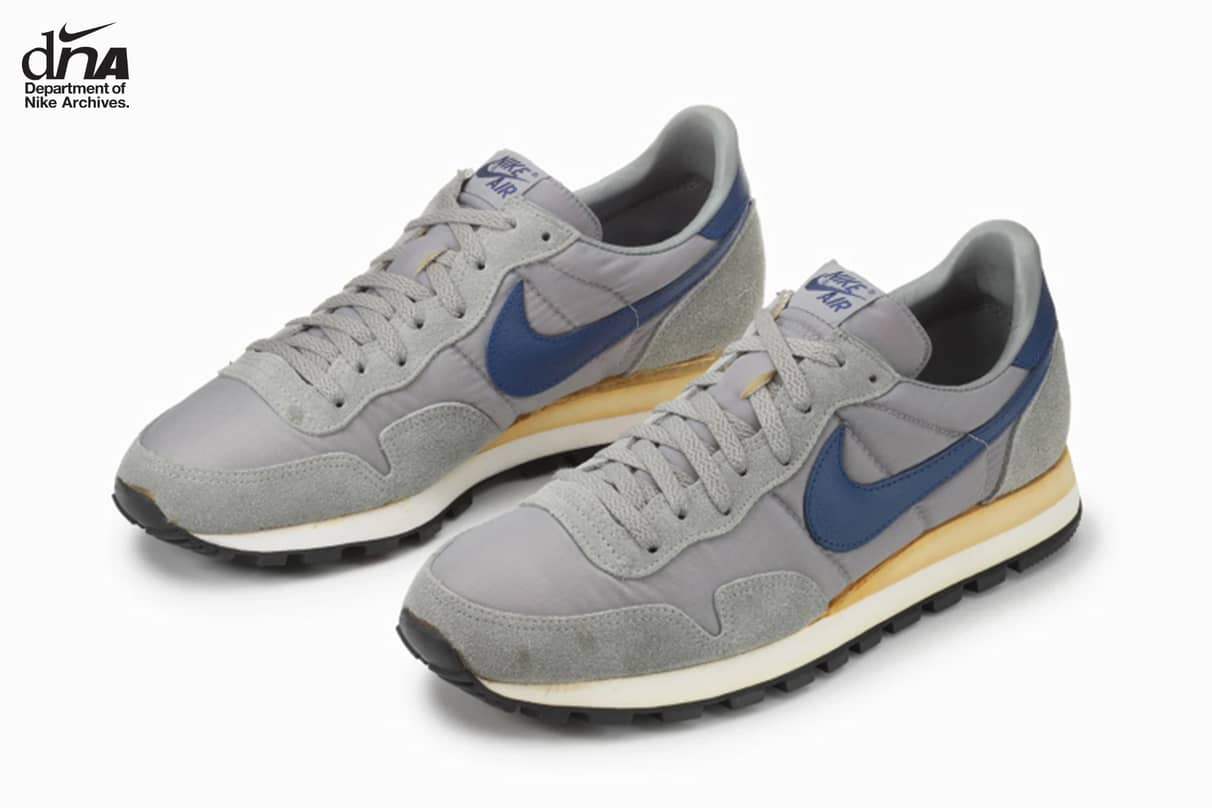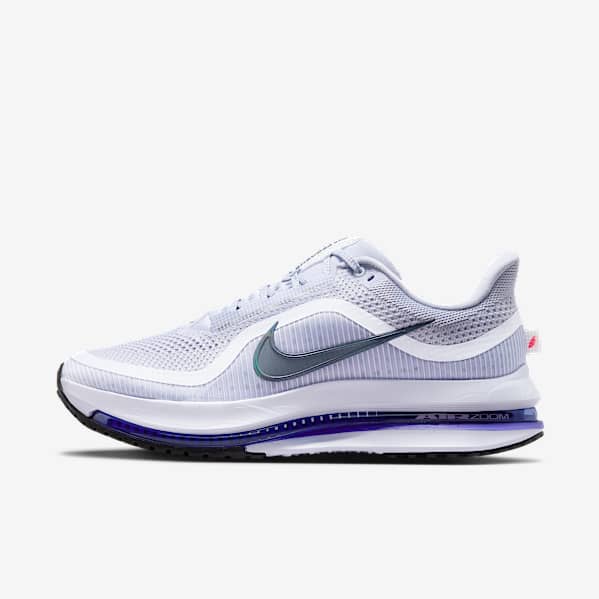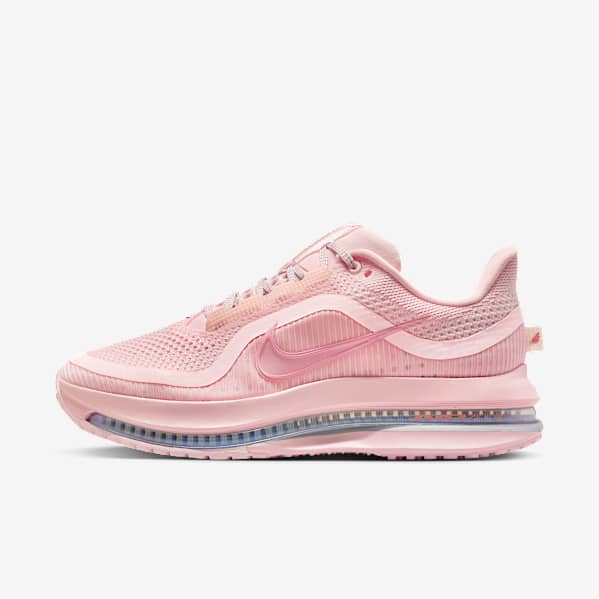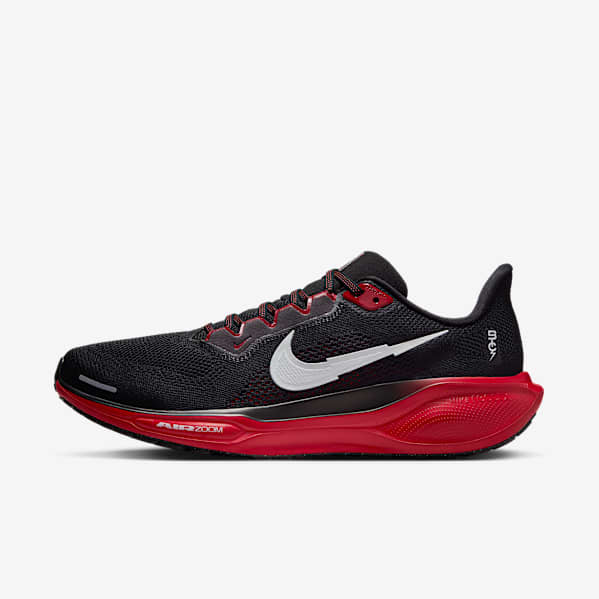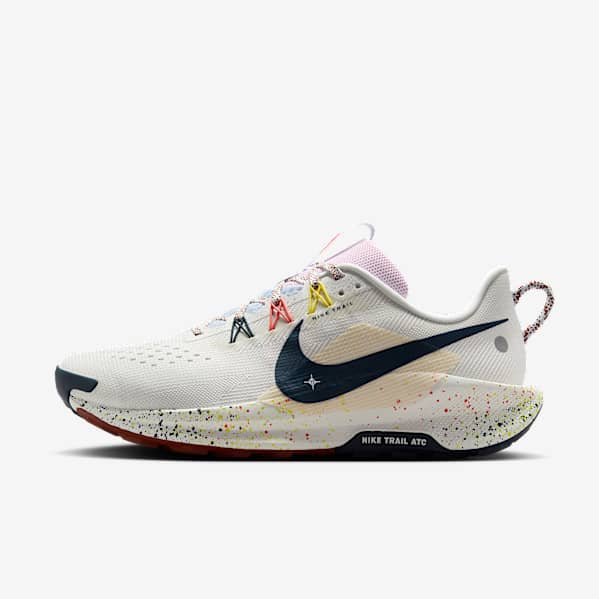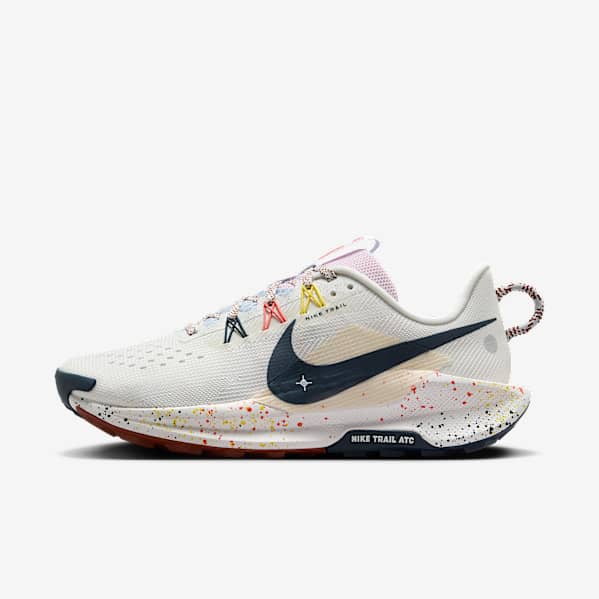The History of the Pegasus
Product News
Uncover all the details about this most popular running shoe, from the archives.

It's hard to believe that Nike's most popular running shoe was dropped from the line at one point (spoiler: it didn't stay away long).
When the Pegasus launched in 1982, Nike Air was still relatively new. Up until that point, Air units spanned the full length of the shoe. Now with the Pegasus, Air could be positioned just in the heel, which is where most runners’ feet strike when they make contact with the ground.
With a combination of Nike Air, a waffle outsole and a new foam, the Pegasus had the ingredients to become an industry leader in responsive cushioning and a runner favorite. In the first month, 8,000 units sold. About a month later, more than 35,000 pairs sold. In the first half of '83, over 300,000 pairs sold.
Technical and affordable, the Pegasus kept growing in popularity with a relatively consistent build until 1993. However, for a few years, the success of the Pegasus was in question. Some newly introduced features — like a spandex sleeve, a stiffer upper and a visible Air unit in the heel — weren’t resonating with runners.
So, it was decided that dropping this shoe from the line was the only way to save the franchise. The team worked on a reset with a "back to basics" mantra. Dropped in fall 1998 and brought back in fall 2000, the Pegasus line was ready to run again, as part of the newly created Bowerman Series, a collection dedicated to making consistent, dependable footwear for runners, by runners. In 2001, the Pegasus reached nearly $19 million in its first full year on the market.
Already popular in other footwear styles, snappy and responsive Zoom Air was introduced in 2010 (and to this day is still the Air of choice for the Pegasus). Down the road, a number of updates were made, including an upper with added ventilation and refinements that gave a fresh look to the franchise. The 35th edition debuted the shoe’s first-ever, full-length Zoom Air in a contoured unit that curved with the shoe. Was the Pegasus still popular? 12 million pairs sold in 12 months.
Over the next 20 years, the Pegasus established itself as a dependable runner's favorite, while the Nike design team continued to work with athletes to obsess over innovation, fine-tune the performance and expand the Pegasus from one performance shoe to an entire family of shoes with solutions for any run.
This summer, Nike releases the Nike Pegasus 41 (pictured above), which features a new full-length ReactX foam midsole and forefoot and heel Air Zoom units. Appearing for the first time in the Pegasus line, ReactX foam provides higher energy return compared to React foam, while reducing the carbon footprint.
The 2024 Pegasus family includes a range of silhouettes for all needs, abilities and terrain, including easy-on, trail, waterproof and winterized versions. With a pair of Pegasus for every runner and every run, find the pair that’s right for you. Don’t waste your energy. Run in Pegasus.
